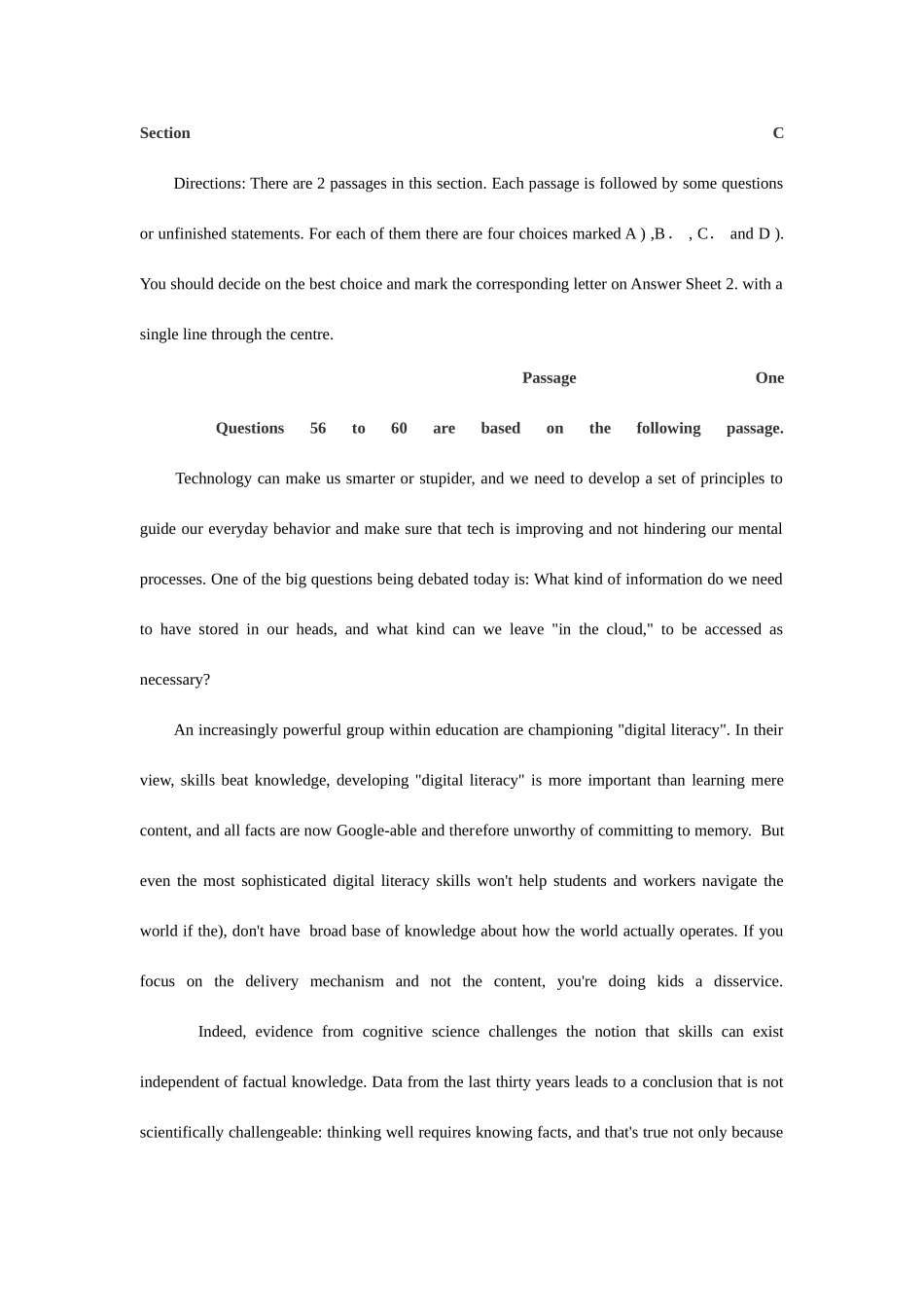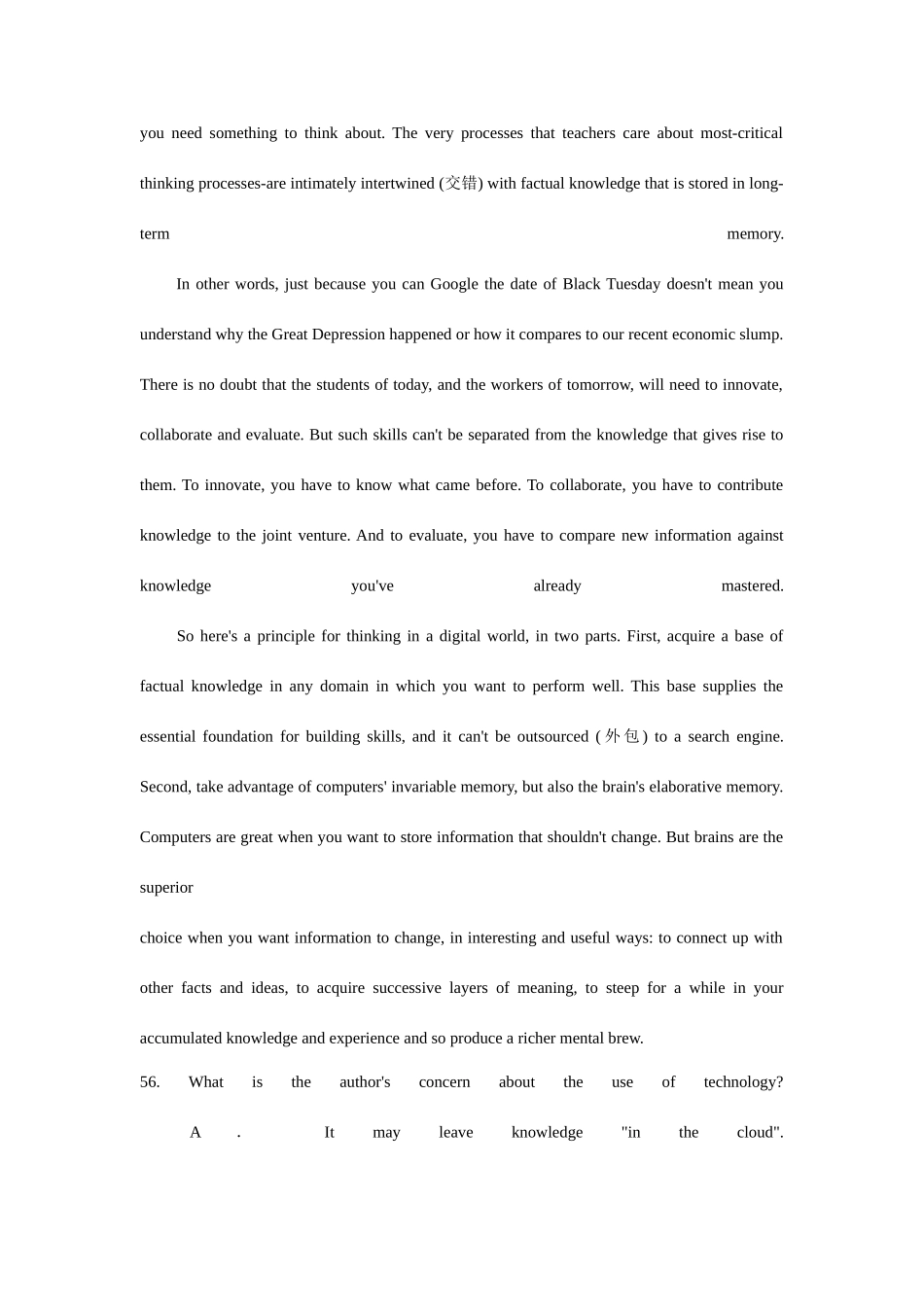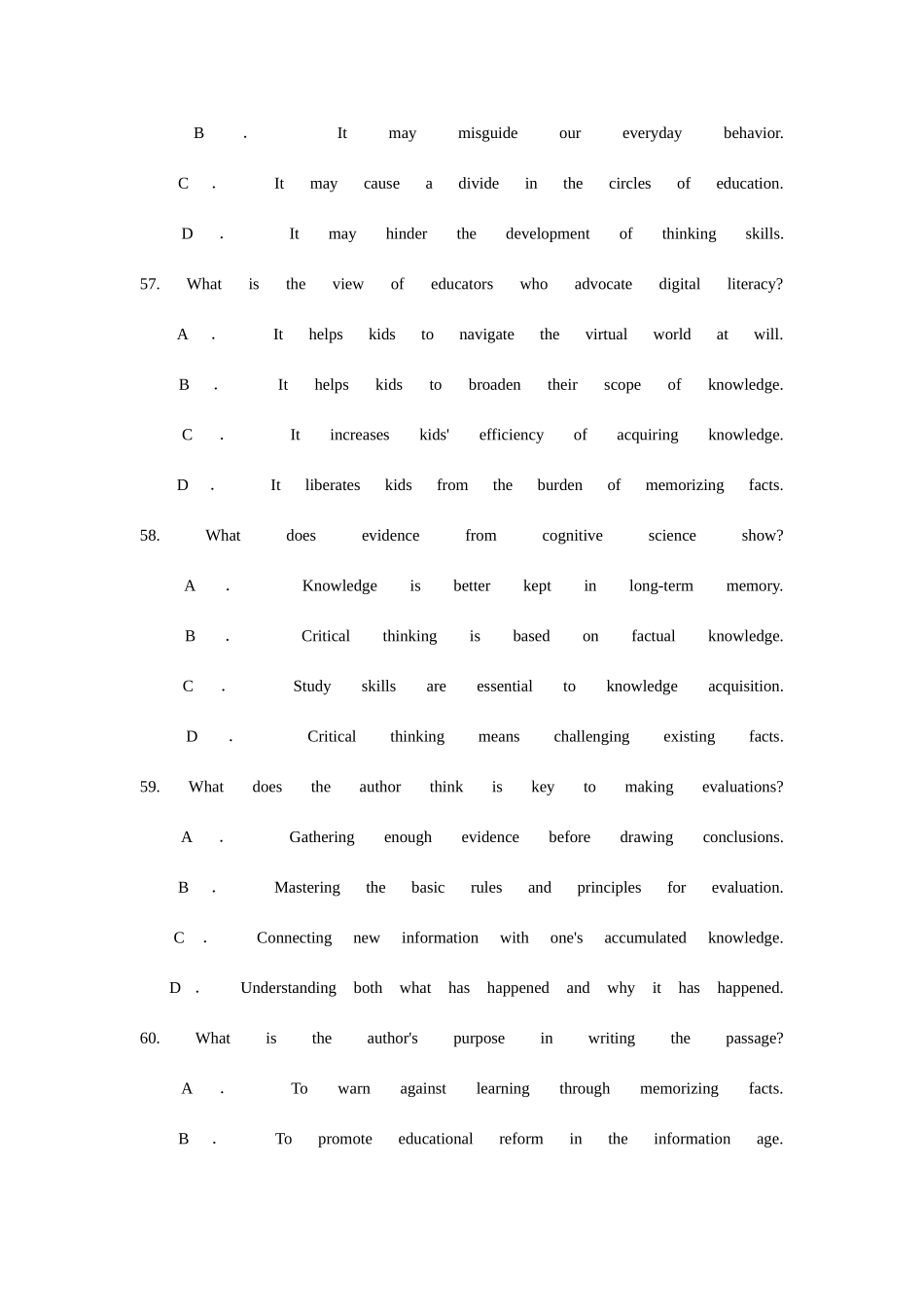Section C Directions: There are 2 passages in this section. Each passage is followed by some questions or unfinished statements. For each of them there are four choices marked A ) ,B. , C. and D ). You should decide on the best choice and mark the corresponding letter on Answer Sheet 2. with a single line through the centre. Passage One Questions 56 to 60 are based on the following passage. Technology can make us smarter or stupider, and we need to develop a set of principles to guide our everyday behavior and make sure that tech is improving and not hindering our mental processes. One of the big questions being debated today is: What kind of information do we need to have stored in our heads, and what kind can we leave "in the cloud," to be accessed as necessary? An increasingly powerful group within education are championing "digital literacy". In their view, skills beat knowledge, developing "digital literacy" is more important than learning mere content, and all facts are now Google-able and therefore unworthy of committing to memory. But even the most sophisticated digital literacy skills won't help students and workers navigate the world if the), don't have broad base of knowledge about how the world actually operates. If you focus on the delivery mechanism and not the content, you're doing kids a disservice. Indeed, evidence from cognitive science challenges the notion that skills can exist independent of factual knowledge. Data from the last thirty years leads to a conclusion that is not scientifically challengeable: thinking well requires knowing facts, and that's true not only because you need something to think about. The very processes that teachers care about most-critica...


